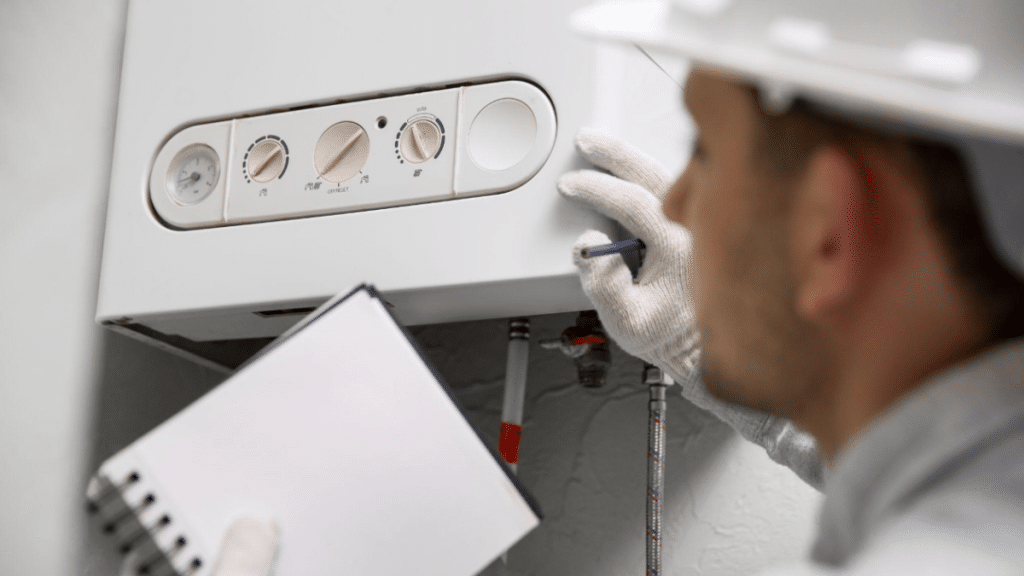Boiler problems can especially become a complex problem whereby simple inconveniences are translated into major emergencies. Boiler alarms are useful in that they notify residents of issues in the system, but this article will explain various boiler issues what they mean, and how homeowners can prevent some of these disasters from happening.
Learning About The Most Frequent Issues With Boilers
Boilers are serving its users to a predictable extent but it is a mechanical appliance that tends to define numerous problems for a longer time. Common problems include:
- Strange Noises: Typically, the sound of gurgling or banging means that there’s air trapped in the system or sludge, or that there’s sediment buildup.
- Leaking Water: Water leaking around the boiler could mean something’s not working as it should: maybe something is leaking or letting air in as another valve, seal, or the boiler itself fails.
- Temperature Fluctuations: If you run into cooler or hotter areas of the home it could mean circulation issues or a broken thermostat.
- Pilot Light Issues: If the gas supply, thermocouple, or safety thermistors fail, the pilot light will go out often.
- Increased Energy Bills: with rising energy expenses, an inefficient boiler that’s hit hard internally due to malfunctions is a telltale sign.
The first step in the prevention of further complications is recognising these problems early.
Proactive Measures to Take
Taking action can prevent a homeowner from costly repairs and emergencies. Following a few essential steps can help maintain boiler health:
- Regular Maintenance: Since the inspections are annual, any warning signs don’t get too out of hand. This can also allow for needed checks and clean components of systems to prevent breakdowns.
- Monitor Boiler Performance: Homeowners should check how their boiler is performing. If an issue isn’t correct, doesn’t work neutrally, or is consistently inefficient, then a professional evaluation is in order.
- Know the Symptoms: As mentioned before, know about common issues and signs of it. If they know about these problems early, they can act before disasters occur.
- Bleed Radiators: Bleeding the radiators is often a good idea for a system with air in it for the air to untrap and get proper circulation and increase heating efficiency.
- Pressure Checks: The pressure of the system must be monitored and kept in the correct place. If you have low readings too then you could have leaks. In dangerous situations, this high pressure could result.
Responding to Emergencies
Emergency plans have been implemented even accessible but emergencies can still be faced. Understanding how to respond can significantly mitigate the risk:
- Shut Off the Boiler: If anything suspect goes on whatsoever, you always stop the boiler down and stop up the lagging compressor seeing that would just pump all that stuff out anyway, and we prevent any more damage.
- Locate the Source of the Problem: Look for visible issues such as noises which may be safe to do so. Recording these helps a technician repair things a lot faster.
- Call a Professional: Any boiler problem should be attended to by a qualified Boiler Repair technician. Sometimes it isn’t a DIY fix.
- Maintain an Emergency Contact List: When the time comes that it’s an emergency, a quick look at the contact details of the HVAC technician on the call is handy.
Conclusion
All homeowners should know the most common boiler problems. The obvious measures that can be taken proactively and knowing the process to take when things go wrong will largely reduce the risk of minor problems turning into big disasters. However, vigilance, when called for, to take action, and cooperating with qualified professionals are what is vitally important. And supply of your boiler also ensures the reliability and safety of your boiler, which will also ensure that your home stays comfortable throughout, and that will further ensure that the investment you have made in your boiler is safe in the long run.
